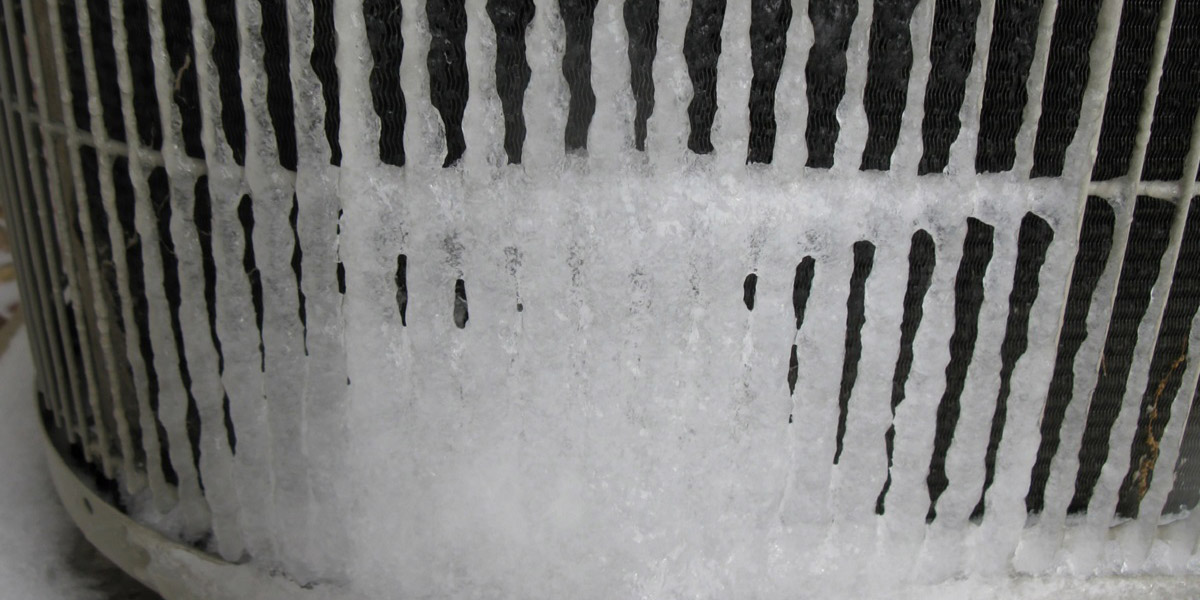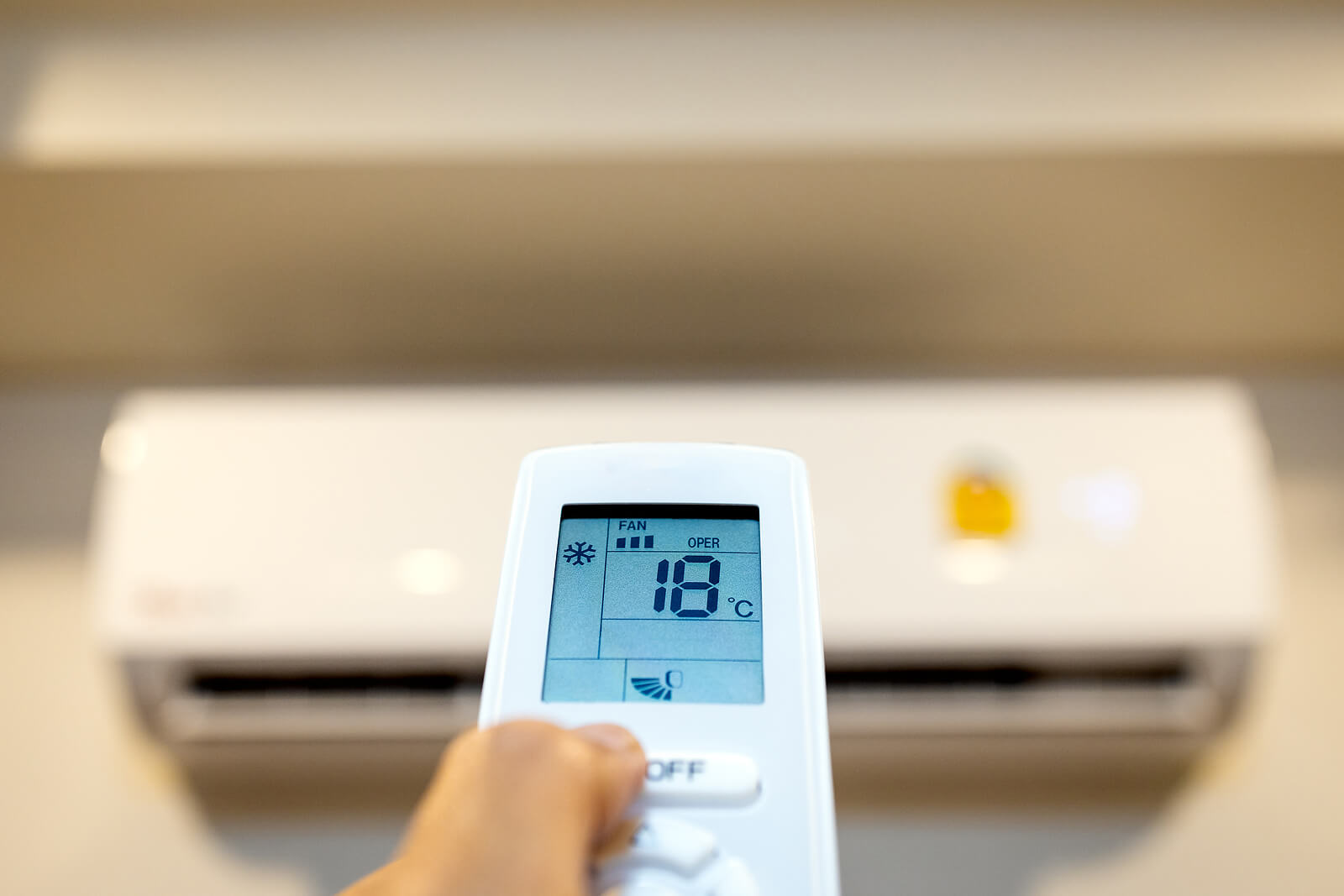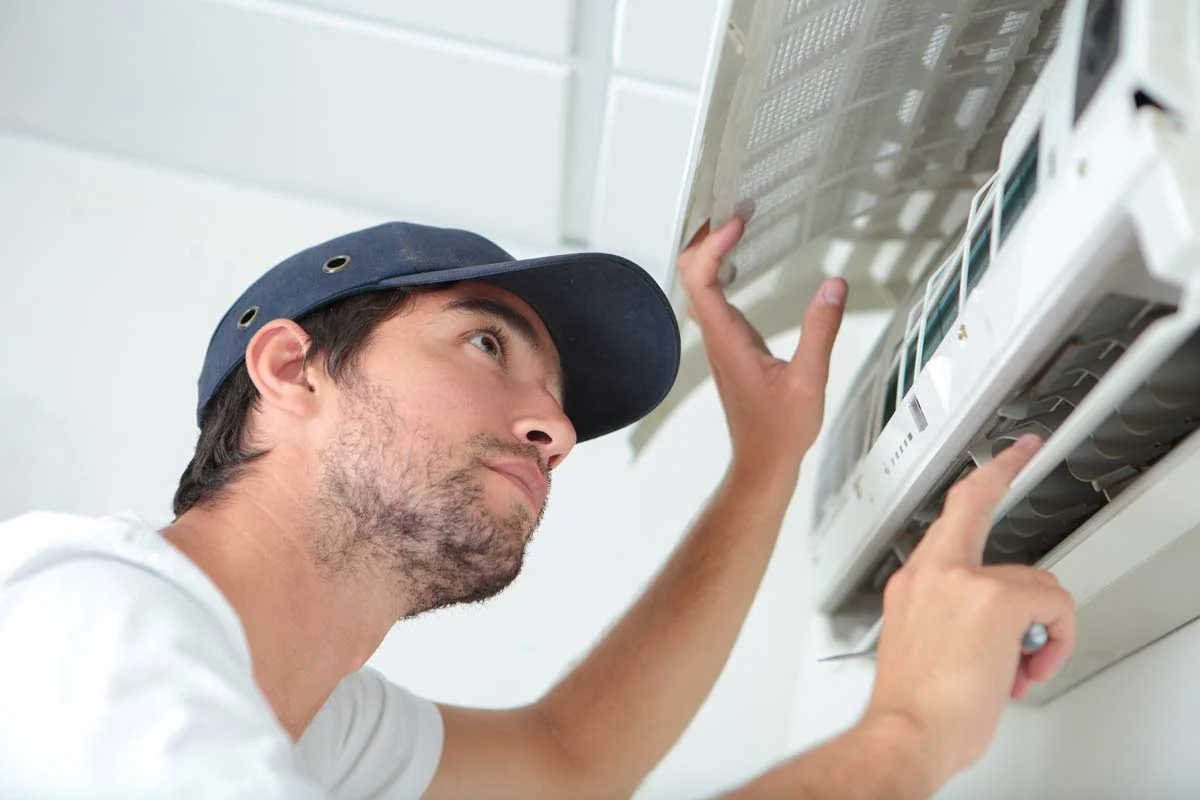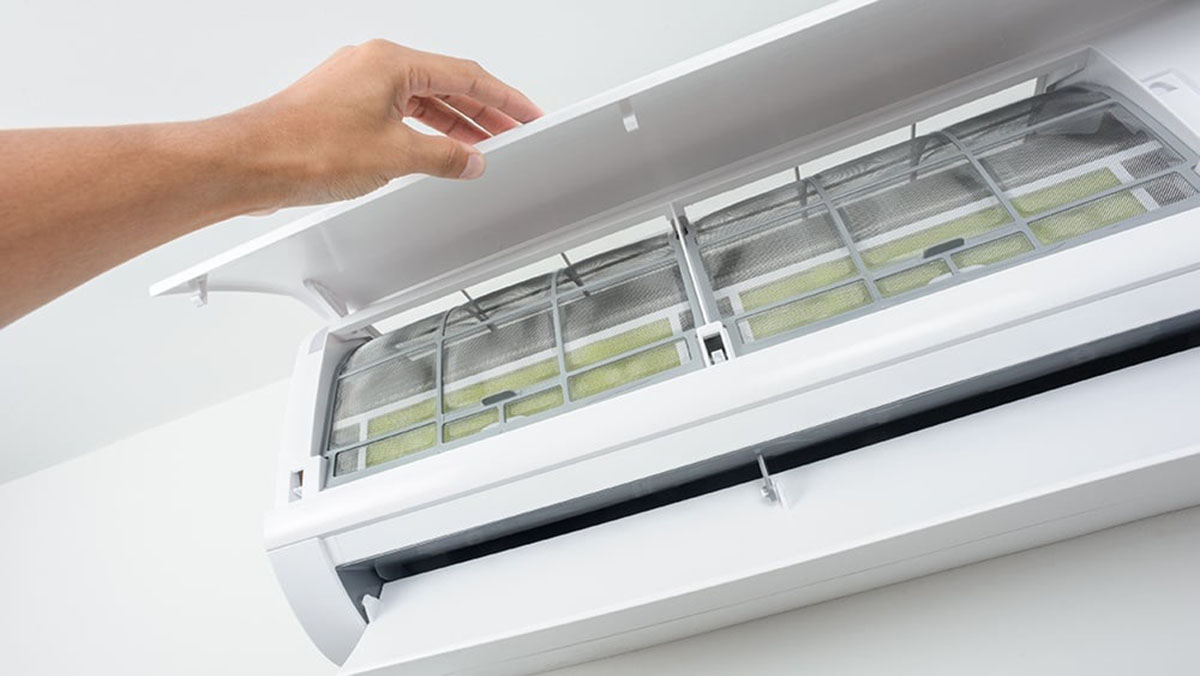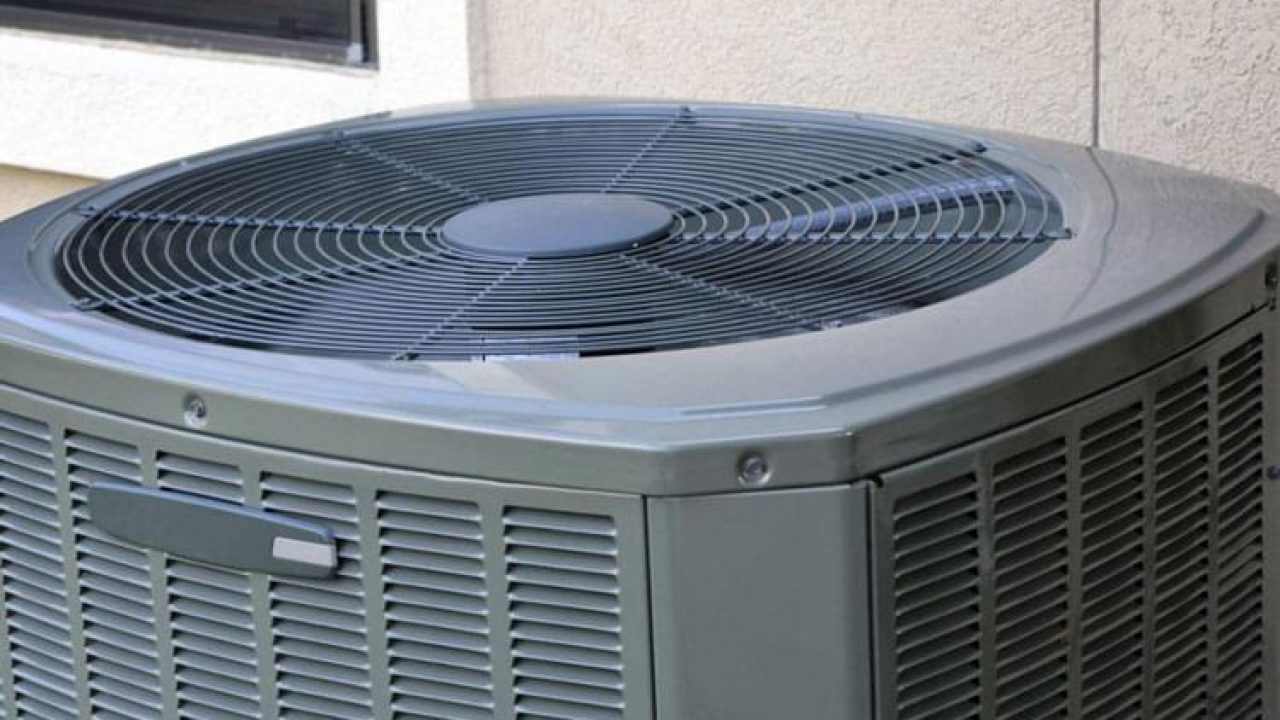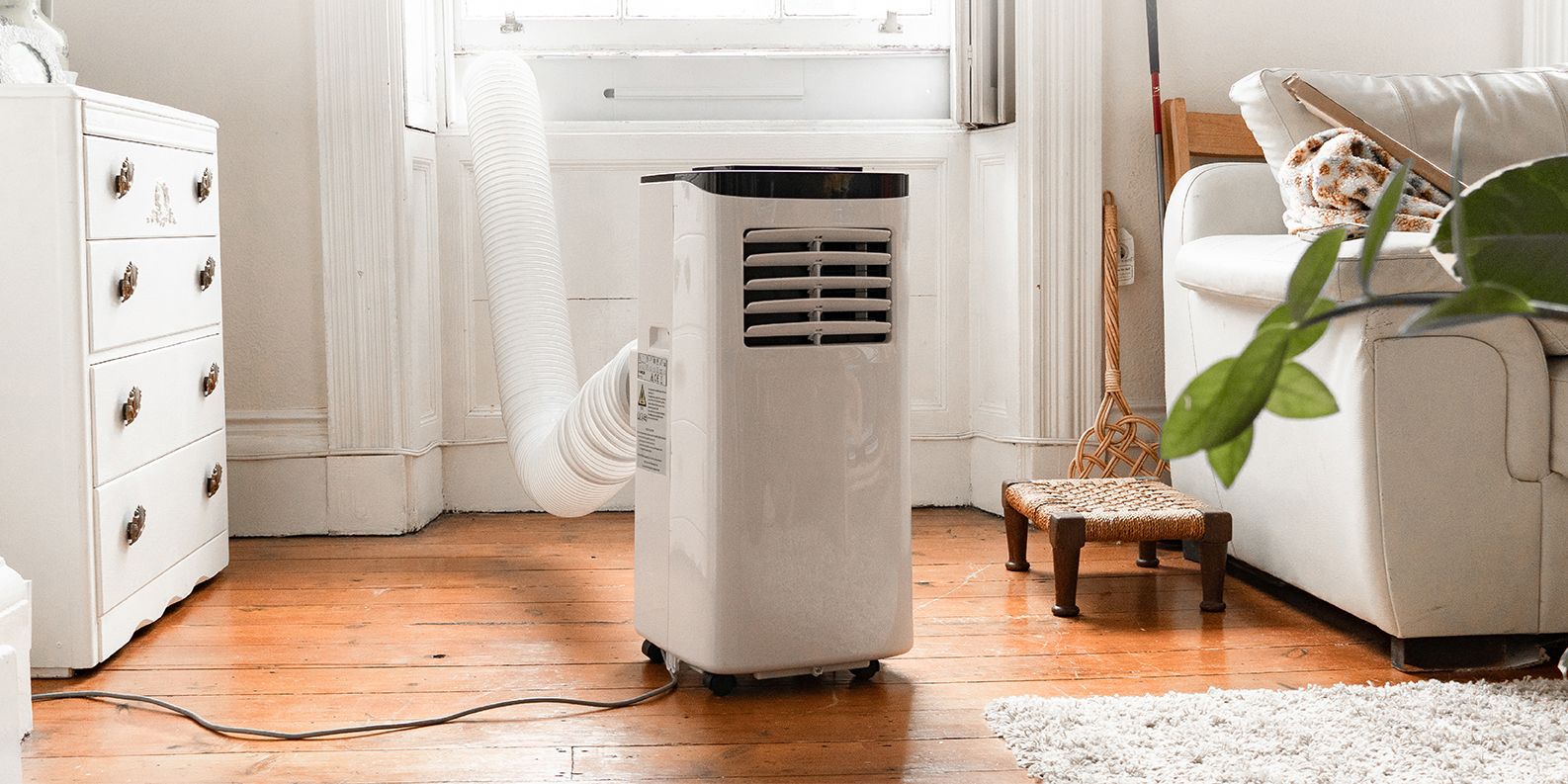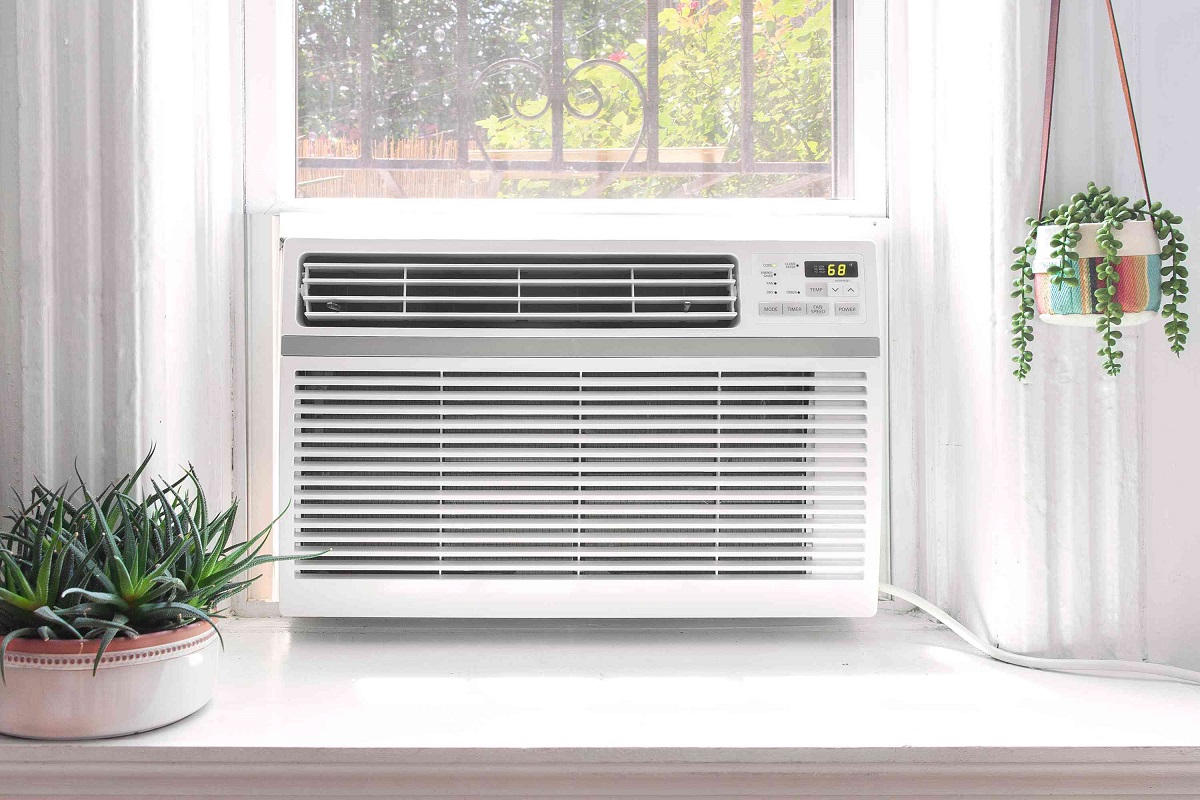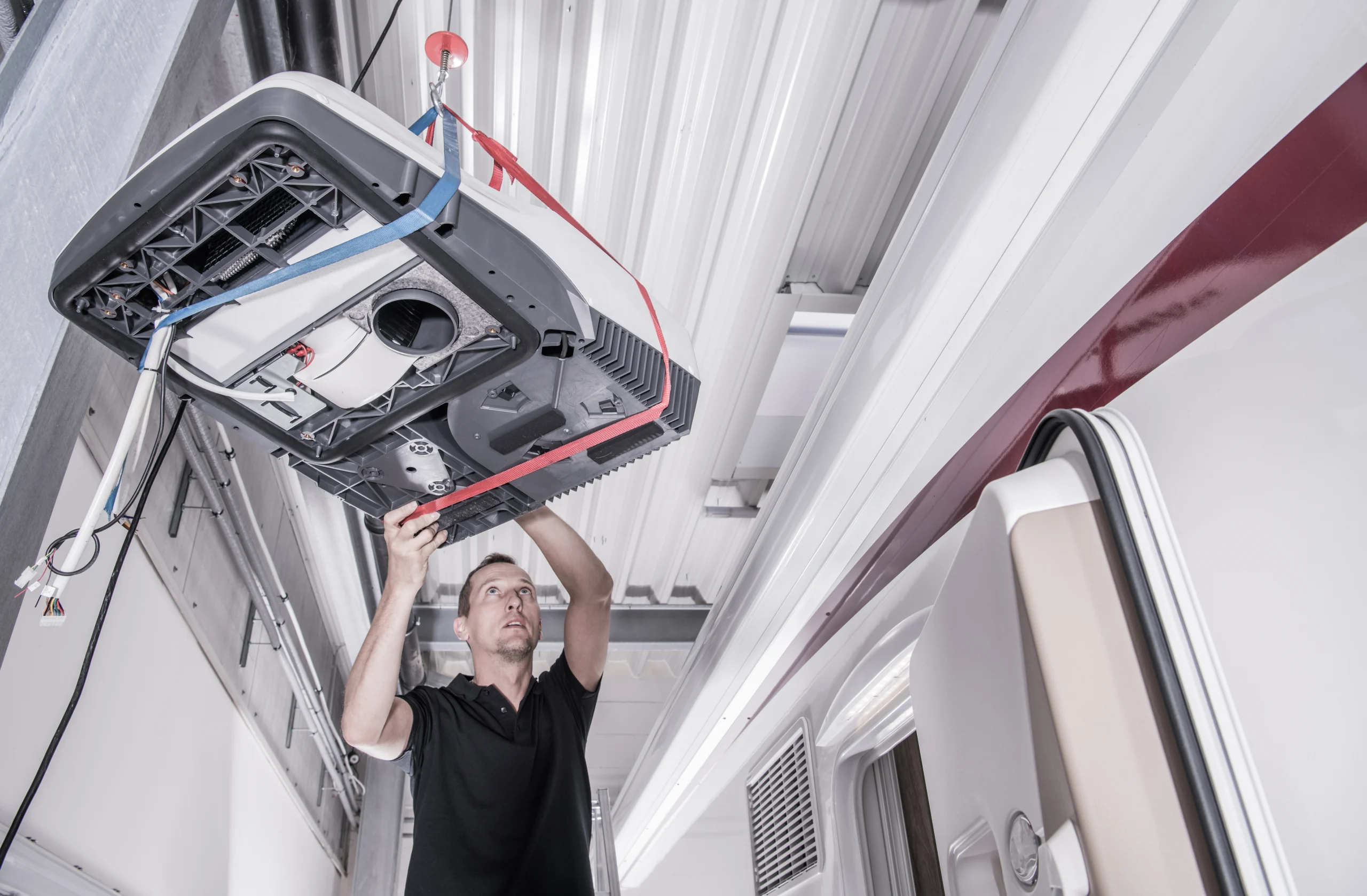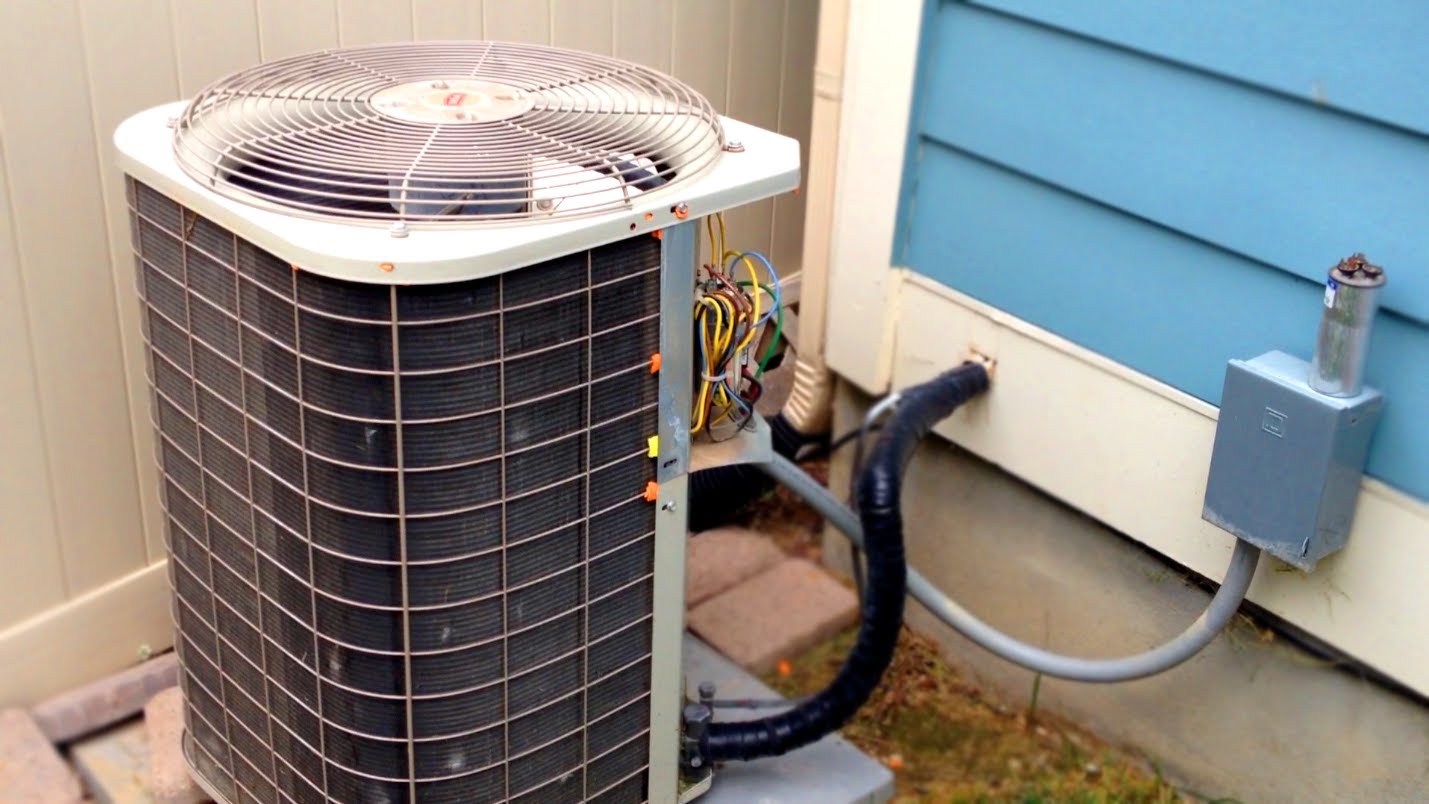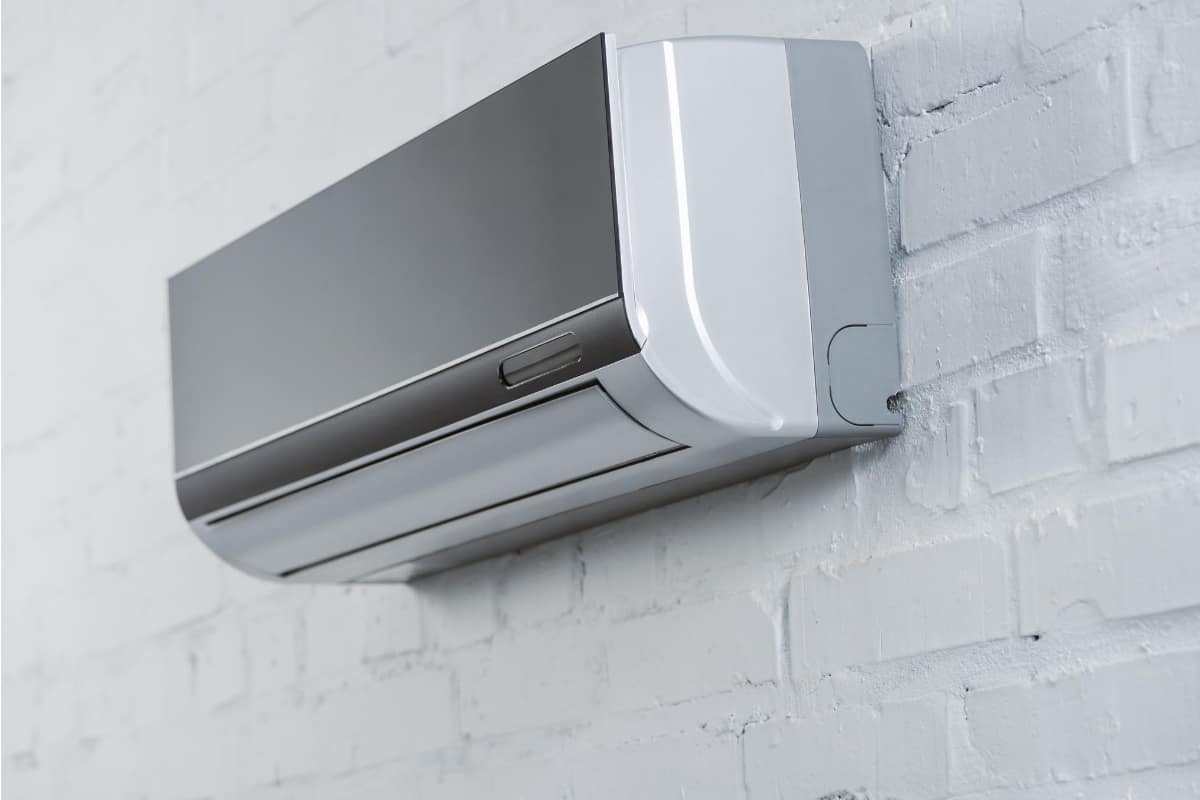Home>Home Maintenance>Why Is My Air Conditioner Not Blowing Hard
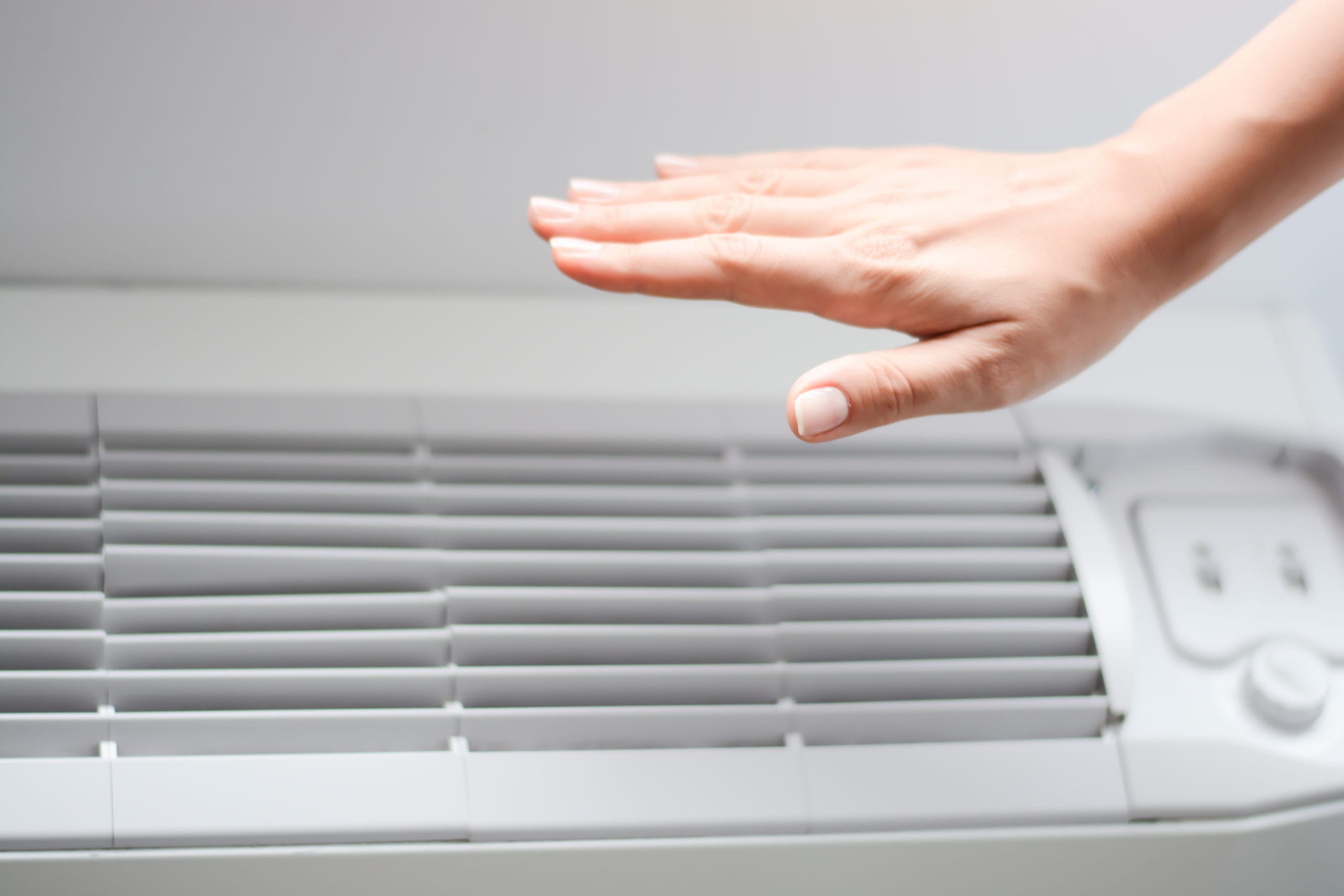

Home Maintenance
Why Is My Air Conditioner Not Blowing Hard
Modified: October 20, 2024
Need home maintenance for your air conditioner? Find out why your AC is not blowing hard and get it fixed today.
(Many of the links in this article redirect to a specific reviewed product. Your purchase of these products through affiliate links helps to generate commission for Storables.com, at no extra cost. Learn more)
Introduction
When the summer heat becomes unbearable, a properly functioning air conditioner is a true lifesaver. But what happens when your air conditioner is running, yet the airflow feels weak and inadequate? This can leave you feeling frustrated and uncomfortable, not to mention concerned about potential underlying issues.
In this article, we will explore the common reasons why your air conditioner may not be blowing as hard as it should. Understanding these factors can help you troubleshoot the problem and determine whether it can be resolved on your own or if professional help is required.
It’s important to note that troubleshooting an air conditioner requires a basic understanding of its components. If you’re uncomfortable or unsure about working with your HVAC system, it’s always best to seek professional assistance to avoid any further damage or safety hazards.
Now, let’s dive into some common causes of weak airflow from your air conditioner.
Key Takeaways:
- Regularly cleaning or replacing clogged air filters can improve airflow and indoor air quality, ensuring your air conditioner works efficiently and lasts longer.
- Keep air vents unobstructed and address blower motor, refrigerant, and ductwork issues promptly to restore strong airflow and enjoy a cool, comfortable home.
Common Reasons for Weak Airflow
Weak airflow from an air conditioner can be caused by several factors. It’s important to identify the underlying cause to determine the best course of action. Let’s explore some of the common culprits:
Clogged Air Filters
One of the most common causes of weak airflow is a clogged air filter. Over time, dust, dirt, and debris accumulate on the filter, restricting the airflow. This not only reduces the efficiency of the air conditioner but also leads to poor indoor air quality.
To resolve this issue, simply locate the air filter, typically found behind the return air grille or in the air handler unit. Remove the filter and clean or replace it, depending on the manufacturer’s instructions. Regularly changing the air filter, approximately every three months, helps maintain proper airflow and improves the overall performance of your system.
Blocked Air Vents
Another common culprit for weak airflow is blocked air vents. Ensure that none of your supply vents are obstructed by furniture, rugs, or curtains. Obstructions prevent the proper flow of air, reducing the effectiveness of your air conditioner. Clear the area around the vents and ensure they are open and unobstructed.
Issues with the Blower Motor
The blower motor is responsible for pushing the conditioned air through the ductwork. If it is not functioning properly, it can result in weak airflow. The motor may be faulty or need maintenance, such as lubrication or belt adjustment. In such cases, it’s advisable to contact a professional HVAC technician to inspect and repair the motor.
Refrigerant Leaks
Refrigerant is the chemical that cools the air in an air conditioning system. If there is a leak in the refrigerant lines, it can cause a drop in pressure and result in weak airflow. Refrigerant leaks should be addressed promptly by a qualified technician, as they can not only reduce efficiency but also pose environmental hazards.
Ductwork Problems
The ductwork is responsible for distributing the cooled air throughout your home. If there are leaks, gaps, or blockages in the ducts, it can lead to weak airflow. Inspect the ductwork for any visible damage or disconnected sections. In some cases, professional duct sealing or cleaning may be necessary to restore proper airflow.
Identifying and resolving these common issues can significantly improve the airflow from your air conditioner. However, if you have tried these troubleshooting steps and still experience weak airflow, it may be time to consult a professional HVAC technician for a thorough inspection and repair.
Now that we have explored the common causes of weak airflow, you can take the necessary steps to resolve the issue and enjoy the cool and refreshing air your air conditioner is intended to deliver.
Clogged Air Filters
One of the most common causes of weak airflow from an air conditioner is a clogged air filter. Air filters play a vital role in maintaining the quality of indoor air and the efficient operation of the HVAC system. Over time, air filters accumulate dust, dirt, allergens, and other particulates from the air, which can restrict the airflow.
When the air filter becomes clogged, it creates resistance to the airflow, causing the air conditioner to work harder to push the air through. This not only results in weak airflow but can also put additional strain on the system, leading to decreased efficiency and even potential damage to the equipment.
Why do air filters get clogged?
There are several reasons why air filters become clogged:
- Poor maintenance: Neglecting to clean or replace the air filter regularly is one of the main reasons for clogging. As the filter gets dirty, it becomes less effective at trapping impurities, causing them to accumulate and restrict the airflow.
- Pets and allergens: If you have pets or live in an area with high pollen or dust levels, these particles can quickly accumulate on the air filter, leading to clogging.
- Construction or remodeling: During construction or remodeling projects, dust and debris can be released into the air, causing the air filter to become clogged faster than usual.
Read more: Why Does My Car Air Conditioner Blow Hot Air
How to address clogged air filters
Fortunately, resolving the issue of clogged air filters is relatively simple. Here are some steps to take:
- Locate the air filter: The air filter is usually located behind the return air grille or within the air handler unit. Refer to your HVAC system’s manual if you’re unsure where to find it.
- Inspect the air filter: Carefully remove the air filter and visually inspect it. If it is covered in a layer of dirt or debris, it is most likely clogged and in need of cleaning or replacement.
- Clean or replace the air filter: Depending on the type of air filter you have, you can either clean it or replace it. Disposable filters usually need to be replaced, while reusable filters can be cleaned and reused. Refer to the manufacturer’s instructions for proper cleaning and replacement guidelines.
- Establish a maintenance schedule: To prevent future clogging and ensure optimal airflow, establish a regular maintenance schedule for cleaning or replacing the air filter. This timeframe can vary depending on factors such as the type of filter, the number of occupants in your home, and environmental factors such as pet hair or allergens.
By addressing clogged air filters promptly and including regular maintenance as part of your HVAC system care routine, you can improve the airflow from your air conditioner and promote better indoor air quality. Remember, a clean and well-maintained air filter not only helps with airflow but also extends the lifespan of your HVAC system.
Blocked Air Vents
If you notice weak airflow from your air conditioner, one possible culprit could be blocked air vents. Even if your unit is in perfect working condition, obstructions in the vents can prevent adequate airflow, resulting in reduced cooling efficiency and discomfort in your home.
Common causes of blocked air vents
Blocked air vents can occur due to various reasons:
- Furniture placement: One of the most common causes is furniture blocking the air vents. Sofas, beds, and other large pieces of furniture can unintentionally cover the vents, obstructing the flow of cool air into the room.
- Decorative items: Decorative items such as curtains, drapes, or rugs placed near the vents can impede the airflow. While these items may enhance the aesthetic appeal of the room, they can restrict the movement of air from the air conditioner.
- Dust and debris: Over time, dust and debris can accumulate in the vents. This buildup restricts the passage of air and reduces the efficiency of the air conditioner.
How to address blocked air vents
Here are some steps you can take to address and prevent blocked air vents:
- Check for obstructions: Inspect each room in your home and ensure that none of the air vents is blocked by furniture, rugs, or other objects. Clear any obstacles that may obstruct the airflow.
- Reposition furniture: Move furniture away from the air vents to allow unrestricted airflow. If possible, rearrange the layout of the room to optimize the distribution of cool air.
- Remove decorative items: Identify any decorative items, such as curtains or rugs, that may be blocking the airflow. Consider adjusting or removing these items to improve the airflow from the air conditioner.
- Clean the vents: Dust and debris can accumulate in the vents over time. Regularly clean the vents using a vacuum cleaner or a soft brush to remove any blockages. Be sure to turn off the air conditioner before cleaning the vents.
- Maintain a clean environment: Keep your home clean and dust-free to minimize the buildup of debris in the vents. Regular dusting and cleaning can help ensure proper airflow and prevent blockages.
By addressing blocked air vents, you can ensure efficient airflow from your air conditioner, improving both comfort and energy efficiency in your home. Remember to conduct regular checks to prevent any future blockages and optimize the performance of your HVAC system.
Read more: Why Is My Air Conditioner Blowing Warm Air
Issues with the Blower Motor
If your air conditioner is not blowing hard, one of the possible causes could be issues with the blower motor. The blower motor plays a crucial role in pushing the conditioned air through the ductwork and into your living spaces. When this component malfunctions or encounters problems, it can result in weak airflow and reduced cooling performance.
Common issues with the blower motor
Several issues can arise with the blower motor, leading to weak airflow:
- Motor malfunction: Over time, the blower motor can experience wear and tear, which can result in a decrease in performance. The motor may become weak, making it difficult to generate sufficient airflow.
- Electrical problems: Faulty wiring, loose connections, or electrical component failures can affect the operation of the blower motor. These issues can cause the motor to operate at a lower speed, resulting in weak airflow.
- Belt or pulley issues: If your HVAC system utilizes a belt-driven blower motor, problems with the belt or pulleys can affect the motor’s performance. A loose or worn-out belt can slip, reducing the speed at which the blower motor operates.
- Lack of maintenance: Insufficient maintenance can lead to the accumulation of dirt and debris on the blower motor, affecting its efficiency. Regular cleaning and lubrication are necessary to ensure optimal performance.
How to address blower motor issues
If you suspect that the blower motor is the cause of the weak airflow in your air conditioner, it is advisable to seek professional help from an HVAC technician. They have the expertise and tools to accurately diagnose the problem and perform the necessary repairs. However, here are a few preliminary steps you can take:
- Check for obstructions: Ensure that there are no obstructions hindering the blower motor’s rotation, such as debris or foreign objects. Clear any blockages before proceeding.
- Inspect the belt and pulleys: If your system utilizes a belt-driven blower motor, visually inspect the belt and pulleys for signs of wear, looseness, or damage. If necessary, tighten the belt or replace it with a new one.
- Clean the motor: Turn off the power supply to the air conditioner and carefully clean the blower motor and its components. Remove any accumulated dirt, dust, or debris using a soft brush or a vacuum cleaner. Avoid using harsh cleaning agents.
- Schedule professional maintenance: Regular maintenance by a professional HVAC technician is crucial for the optimal functioning of the blower motor. They can perform a comprehensive inspection, clean the motor thoroughly, lubricate necessary components, and address any underlying issues.
Remember, troubleshooting and repairing the blower motor require technical knowledge and expertise. It is best to leave the diagnosis and repair of blower motor issues to qualified professionals to ensure safety and proper resolution of the problem.
By addressing any issues with the blower motor promptly and ensuring regular maintenance, you can restore strong airflow from your air conditioner and enjoy a comfortable and cool indoor environment.
Refrigerant Leaks
If you notice weak airflow from your air conditioner, one potential cause could be refrigerant leaks. Refrigerant is the chemical responsible for absorbing heat from the indoor air and releasing it outside, thereby cooling your home. When there is a leak in the refrigerant lines, it not only affects the cooling performance but can also lead to weak airflow and other issues.
Read more: Why Is My Air Conditioning Blowing Hot Air
Signs of refrigerant leaks
It’s essential to be aware of the signs that may indicate a refrigerant leak:
- Reduced cooling efficiency: If your air conditioner takes longer to cool your home or isn’t able to reach the desired temperature, it could be a sign of a refrigerant leak.
- Weak airflow: In addition to decreased cooling, a refrigerant leak can cause reduced airflow from the air conditioner. You may notice that the air coming from the vents feels weak or doesn’t circulate as strongly as it should.
- Hissing or bubbling noises: A refrigerant leak sometimes produces hissing or bubbling sounds near the indoor or outdoor unit of the air conditioner.
- Icing or frost buildup: Refrigerant leaks can cause the evaporator coil in the indoor unit to freeze, resulting in ice or frost buildup on the unit or the refrigerant lines.
Why refrigerant leaks occur
Refrigerant leaks can occur due to several reasons:
- Corrosion or damage: Over time, the refrigerant lines may become corroded, leading to leaks. This can happen due to exposure to moisture or environmental factors.
- Poor installation: If the air conditioner was not properly installed or if the refrigerant lines were not adequately sealed during installation, it can result in leaks.
- Manufacturing defects: In rare cases, manufacturing defects in the air conditioner or the refrigerant lines can lead to leaks.
- Normal wear and tear: Over an extended period, the refrigerant lines may develop small leaks due to age and normal wear and tear.
Addressing refrigerant leaks
If you suspect a refrigerant leak in your air conditioner, it is crucial to have it addressed by a professional HVAC technician. Attempting to fix refrigerant leaks yourself is not recommended, as it requires specialized knowledge and proper equipment. Here are the steps typically taken to address refrigerant leaks:
- Professional inspection: Contact a qualified HVAC technician who will inspect the air conditioner, identify any refrigerant leaks, and assess the extent of the damage.
- Repair or replacement: Depending on the severity of the leak, the technician will either repair the leak or recommend replacing the affected component. This may involve sealing the leak, replacing a damaged section of the refrigerant line, or installing a new coil.
- Recharge the refrigerant: After repairing the leak, the technician will recharge the system with the appropriate amount of refrigerant to ensure optimal performance.
- Regular maintenance: To prevent future refrigerant leaks and ensure efficient operation, schedule regular maintenance for your air conditioner. This includes checking for leaks, performing necessary repairs, and maintaining proper refrigerant levels.
Addressing refrigerant leaks promptly is crucial for maintaining the cooling efficiency of your air conditioner and preventing further damage to the system. Professional assistance is essential to ensure a proper diagnosis, repair, and recharge of the refrigerant system.
By taking swift action and relying on professional expertise, you can restore proper airflow, improve the cooling performance of your air conditioner, and ensure comfort in your home.
Ductwork Problems
If your air conditioner is not blowing hard, one possible reason could be problems with the ductwork. The ductwork in your home plays a crucial role in distributing the cooled air from the air conditioner throughout different rooms. When the ductwork is compromised, it can result in weak airflow and reduced cooling efficiency.
Read more: Why Is My Air Conditioner Surging
Common ductwork problems
Several issues related to the ductwork can impact the airflow from your air conditioner:
- Leaky ducts: Ductwork can develop leaks over time, allowing cool air to escape before reaching its intended destination. Leaky ducts not only reduce airflow but also cause energy wastage and higher utility bills.
- Blocked or obstructed ducts: Objects or debris in the ducts can obstruct the airflow, preventing the conditioned air from freely circulating. This can result in weak airflow and uneven cooling throughout your home.
- Disconnected or poorly connected ducts: Ducts that are disconnected or not properly connected can allow air to escape, leading to weak airflow and reduced cooling efficiency. This often occurs during construction or renovation work.
- Inadequate duct sizing: If the ductwork is not properly sized for your air conditioning system, it can restrict the airflow. Undersized ducts can cause air to back up, while oversized ducts can lead to reduced air velocity.
Identifying and addressing ductwork problems
To address issues with the ductwork and improve airflow, consider the following steps:
- Visual inspection: Examine the visible parts of the ductwork, such as the sections in the attic or crawl spaces, for signs of leaks, disconnections, or blockages. Look for gaps, loose connections, or any areas where the insulation may be damaged.
- Sealing leaks: Use duct sealant or metal tape to seal any noticeable leaks in the ductwork. This will help prevent conditioned air from escaping and ensure that the air reaches its intended destination.
- Clear obstructions: Remove any objects, debris, or blockages from the ducts that may be obstructing the airflow. This will improve the overall airflow and distribution of cool air throughout your home.
- Ensure proper connections: If you come across any disconnected or poorly connected ducts, ensure they are properly reconnected. Consider hiring a professional HVAC technician to assist with complex ductwork issues.
- Consider duct sizing: If you suspect that the ducts are improperly sized, consult with an HVAC professional to assess the situation. They can determine if resizing the ductwork is necessary to improve airflow and cooling efficiency.
- Professional duct cleaning and maintenance: Schedule regular professional duct cleaning and maintenance to remove any accumulated dirt, dust, or debris that may be hindering the airflow. This will also help identify and address any hidden issues with the ductwork.
If you encounter complex or extensive ductwork problems, it is recommended to seek professional assistance from an HVAC technician with experience in ductwork inspection and repair. They can provide a comprehensive assessment, make the necessary repairs, and ensure that the ductwork is functioning optimally.
By addressing ductwork problems, you can restore proper airflow from your air conditioner, enhance cooling performance, and create a more comfortable indoor environment. Additionally, well-maintained ductwork contributes to energy efficiency, lower utility bills, and improved indoor air quality.
Conclusion
When your air conditioner is not blowing hard, it can be frustrating, especially during the hot summer months. Understanding the common reasons for weak airflow can help you troubleshoot the problem and take appropriate action to restore the proper functioning of your air conditioner.
In this article, we explored several possible causes of weak airflow, including clogged air filters, blocked air vents, issues with the blower motor, refrigerant leaks, and ductwork problems. By addressing these issues, you can improve the airflow from your air conditioner and enhance its cooling performance.
To resolve weak airflow, start by checking your air filters and ensuring that they are clean and unclogged. Regularly cleaning or replacing the filters will help maintain proper airflow and indoor air quality. Additionally, ensure that your air vents are not blocked or obstructed by furniture or other objects, as this can restrict the flow of air.
If you suspect issues with the blower motor, such as malfunctions, electrical problems, or belt and pulley issues, it’s best to seek professional assistance. HVAC technicians can diagnose and repair the motor, ensuring that it operates efficiently and restores strong airflow.
Refrigerant leaks are another common cause of weak airflow. These leaks can be detected by reduced cooling efficiency, weak airflow, hissing sounds, or icing on the unit or refrigerant lines. If you suspect a refrigerant leak, it is crucial to contact a professional HVAC technician, as resolving these leaks requires specialized knowledge and equipment.
Lastly, ductwork problems, such as leaks, blockages, or inadequate sizing, can significantly impact the airflow from your air conditioner. A visual inspection of the ductwork can reveal any noticeable issues, and addressing them through duct sealing, clearing obstructions, or resizing can restore proper airflow and improve cooling efficiency.
In all cases, regular maintenance and professional inspections can help prevent and identify potential issues that may cause weak airflow. By taking proactive measures and addressing these problems, you can maximize the performance and lifespan of your air conditioning system.
Remember, while some troubleshooting steps can be performed on your own, it is always best to seek professional help when dealing with complex issues or if you are unsure about working with your HVAC system. HVAC technicians have the expertise and equipment to handle repairs and ensure the safety and efficiency of your air conditioning system.
By understanding and addressing the common causes of weak airflow, you can enjoy a comfortable and cool indoor environment during even the hottest summer days.
Frequently Asked Questions about Why Is My Air Conditioner Not Blowing Hard
Was this page helpful?
At Storables.com, we guarantee accurate and reliable information. Our content, validated by Expert Board Contributors, is crafted following stringent Editorial Policies. We're committed to providing you with well-researched, expert-backed insights for all your informational needs.
